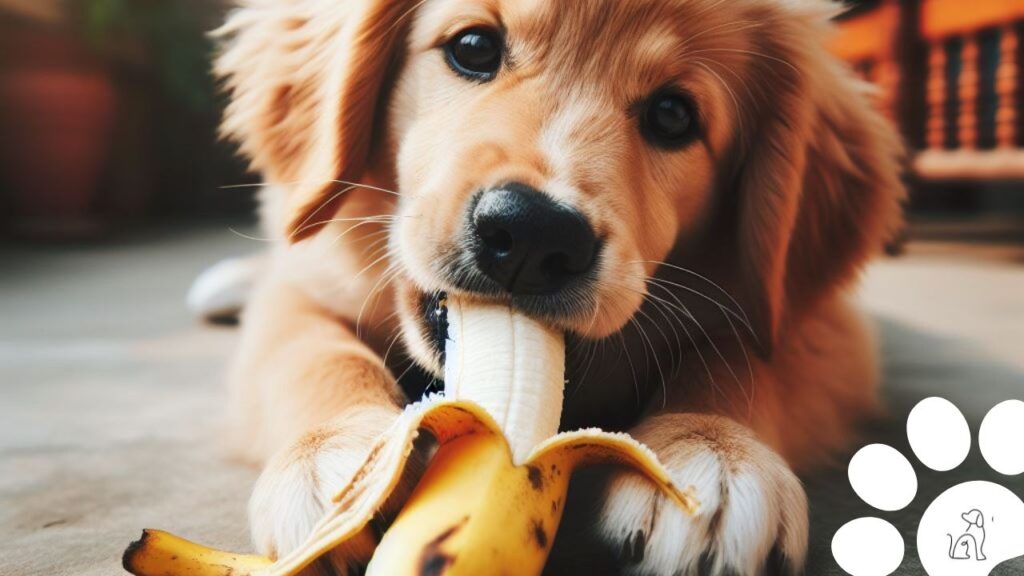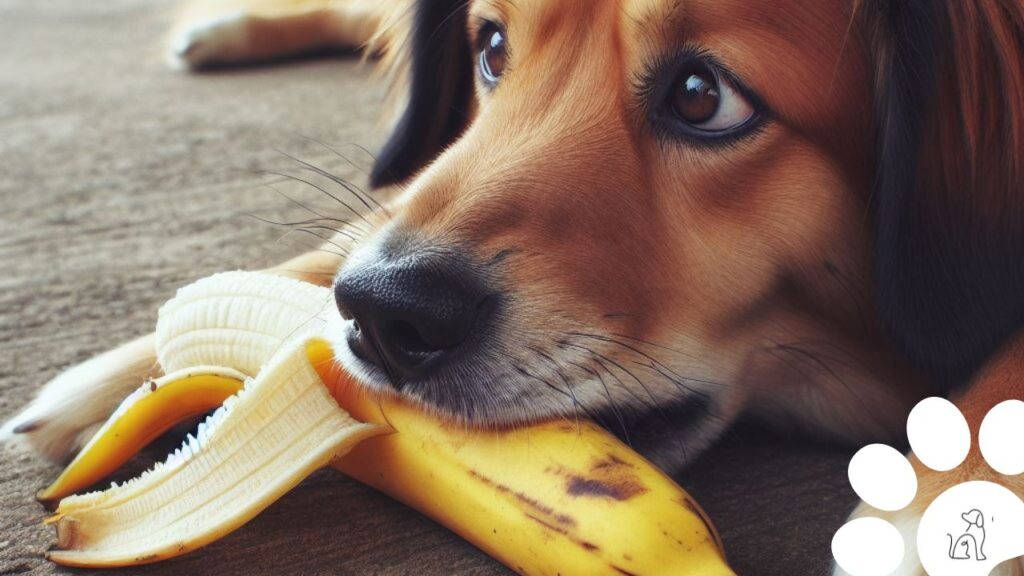The Best Fluffy Pancakes recipe you will fall in love with. Full of tips and tricks to help you make the best pancakes.
Ever wondered if those puppy-dog eyes gazing at your banana are justified? Can dogs eat bananas?
The answer is yes, dogs can eat bananas in moderation! This sunshine-colored fruit packs a surprising punch of nutrients that can benefit your canine companion.
But before you go peeling a whole bunch, it’s important to understand how to incorporate bananas safely into your dog’s diet.
Let’s delve into the world of bananas and dog treats, exploring the benefits, potential downsides, and the best ways to share this tasty snack with your furry friend.
Can dogs eat bananas?

According to the American Kennel Club, dogs can eat bananas as an occasional treat.
In moderation, they are a healthy source of potassium, vitamins, biotin, fiber, and copper. They are also low in cholesterol and sodium.
However, it’s important to remember that bananas are also high in sugar, so they should not be a regular part of your dog’s diet. Bananas have a high sugar content and can even cause diabetes in dogs.
Can dogs have overripe bananas?
Yes, dogs can have overripe bananas, but there are a few things to consider. While ripe bananas offer the same nutrients as regular ripe ones, they also have a higher concentration of sugar and carbohydrates.
This can be beneficial for a quick energy boost, but too much sugar can lead to weight gain and digestive issues. Additionally, some dogs with underlying health conditions like diabetes may need to avoid overripe bananas altogether.
The key is moderation and understanding your dog’s individual needs. If you’re unsure, consult your veterinarian about the appropriate amount of banana, ripe or otherwise, to include in your dog’s diet.
Remember, even perfectly ripe bananas should be an occasional treat, not a regular part of their meals.
Can dogs eat banana peels?

No, while banana peels themselves aren’t poisonous to dogs, they can cause digestive problems.
The peel’s tough texture and high fiber content make it difficult for dogs to digest, potentially leading to an intestinal blockage.
This blockage can be serious and might require surgery to remove. To avoid these risks, it’s best to keep banana peels out of your dog’s reach and only share the banana itself in moderation.
If you’re unsure about how much banana is appropriate for your dog, consult your veterinarian for guidance.
Do bananas help a dogs upset stomach?
While some believe bananas can alleviate diarrhea in dogs due to their potassium content, it’s actually a digestive gamble.
Bananas are high in fiber, which can worsen diarrhea in some dogs. If your dog has an upset stomach, it’s best to monitor their food intake and reduce it for a day or two.
You can also offer small bland meals like cooked white rice or chicken.
If the diarrhea persists for more than 24 hours, or your dog shows other concerning symptoms like vomiting or lethargy, consult your veterinarian for proper diagnosis and treatment.
Do bananas give dogs diarrhea?
The answer to whether bananas cause diarrhea in dogs depends on the amount consumed. Bananas contain two key ingredients that can influence digestion: fiber and sugar.
Fiber: in moderation, fiber can actually be beneficial for a dog’s digestive system, aiding regularity and bulking up stool. However, too much fiber, like that found in a whole banana for a small dog, can overwhelm their system and lead to diarrhea or an upset stomach.
Sugar: the high sugar content in bananas can also disrupt a dog’s gut bacteria, another potential culprit for diarrhea. When a dog ingests a large amount of sugar, it can cause an imbalance in the good and bad bacteria in their intestines, leading to digestive issues.
Portion control is key: so, how much banana is safe for your dog? The size of your dog plays a crucial role. According to Rover.com, small dogs should only have thin slices of banana, while larger dogs can handle a bit more, perhaps up to half a banana. Remember, moderation is key!
Consult your veterinarian: if you’re unsure about how much banana is appropriate for your dog, or if your dog experiences diarrhea after eating bananas, consult your veterinarian. They can advise you on the best course of action based on your dog’s individual needs and health.
Faq
Can dogs eat bananas? What should be considered when feeding bananas to dogs?
Yes, dogs can eat bananas in moderation. However, it’s important to consider their high sugar content and potential digestive issues if consumed in excess.
Do bananas help with a dog’s upset stomach? Why or why not?
Bananas may not necessarily help with a dog’s upset stomach. While they contain potassium, they are also high in fiber, which can worsen diarrhea in some dogs.
Can bananas cause diarrhea in dogs? What factors contribute to this?
Yes, bananas can cause diarrhea in dogs if consumed in large amounts. The high fiber and sugar content can overwhelm a dog’s digestive system, leading to digestive issues.
Are banana peels safe for dogs to eat? Why should they be avoided?
No, banana peels are not safe for dogs to eat. While they aren’t toxic, their tough texture and high fiber content can lead to digestive problems and even intestinal blockages.
Is it safe for dogs to eat overripe bananas? What precautions should be taken?
Yes, dogs can have overripe bananas, but moderation is key. Overripe bananas have a higher concentration of sugar, which can lead to weight gain and digestive issues if consumed excessively. Consult your veterinarian for guidance on the appropriate amount for your dog’s diet.
Do you like this content? Stay on our site and read more about dogs!







